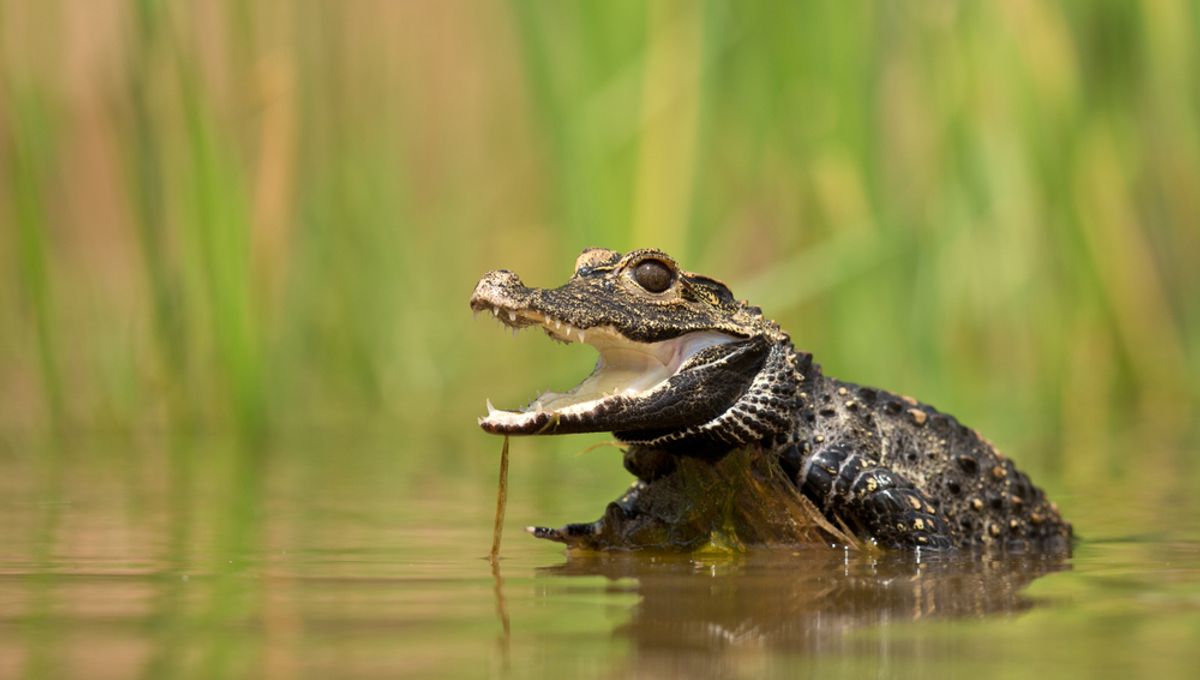
If you’ve ever wondered what a crocodile sounds like, we’re willing to bet you weren’t imagining this. One fun-size, West African crocodile inexplicably sounds just like a cow – and the revelation could be useful for conservationists trying to keep tabs on the tiny reptiles.
The African dwarf crocodile (Osteolaemus tetraspis) is the smallest extant species of crocodile, but what it lacks in stature, it more than makes up for in unusual vocalizations. Audio recordings reveal its uncanny, cow-like calls, as well as three other noises also resembling familiar sounds.
Far from being just an a-moo-sing discovery, this could also aid conservation efforts (O. tetraspis are classified as vulnerable in the IUCN Red List), providing a reference for species identification. “The data can further contribute to landscape-wide biodiversity monitoring and counter-poaching activities, as well as improving our understanding of crocodilian ecology and behaviour,” the authors write in their study.
In fact, acoustic techniques are becoming invaluable tools for monitoring species and biodiversity. They are particularly useful for forest-dwelling crocodiles, such as O. tetraspis, which can be very difficult to spot using sight alone.
Unfortunately, the vocal repertoire data for many species is still subpar, O. tetraspis included.
“It’s a species that really nobody knows about,” first author Agata Staniewicz told New Scientist.
But that might be about to change, with the discovery of their unique, bovine babble thrusting them into the spotlight.
Recording and cataloging the vocalizations of two captive adult African dwarf crocodiles, the team gleaned some unexpected insights into the elusive creatures. When they compared 97 vocal signals captured from the pair with 201 suspected O. tetraspis calls recorded in the wild in Gabon, the team identified four types of calls, in both wild and captive crocs, that had never been identified before in crocodylids.
These, they have named “drums”, “rumbles”, “gusts”, and “moos”, after familiar sounds they are akin to. Gusts, for example, as their name suggests, sound like a howling wind:
The lower-frequency sounds (drums, rumbles, and gusts) are difficult to make out, but the moos are much clearer, sounding eerily like their namesake:
One species of Chinese alligator may moo too, but apart from that it is virtually unheard of, Staniewicz told New Scientist, making O. tetraspis an oddity among crocodylids, or one in a moo-llion, if you will.
Speaking of unexpected animal noises, this NSFW duck gives mooing crocs a run for their money, and has been living rent-free in our heads since it learned to “talk” back in 2021.
The study is published in the African Journal of Herpetology.
Source Link: This Tiny Crocodile Can Moo – And Yes We Have The Receipts